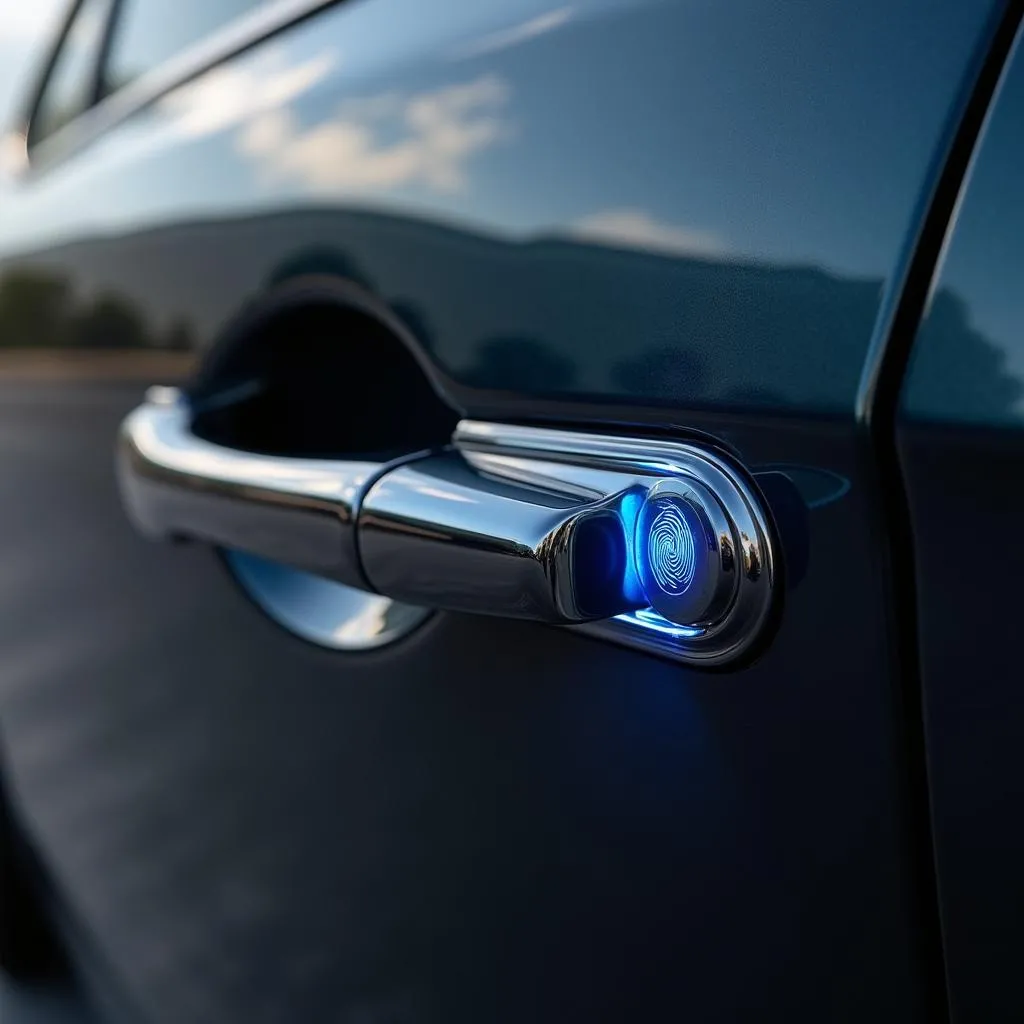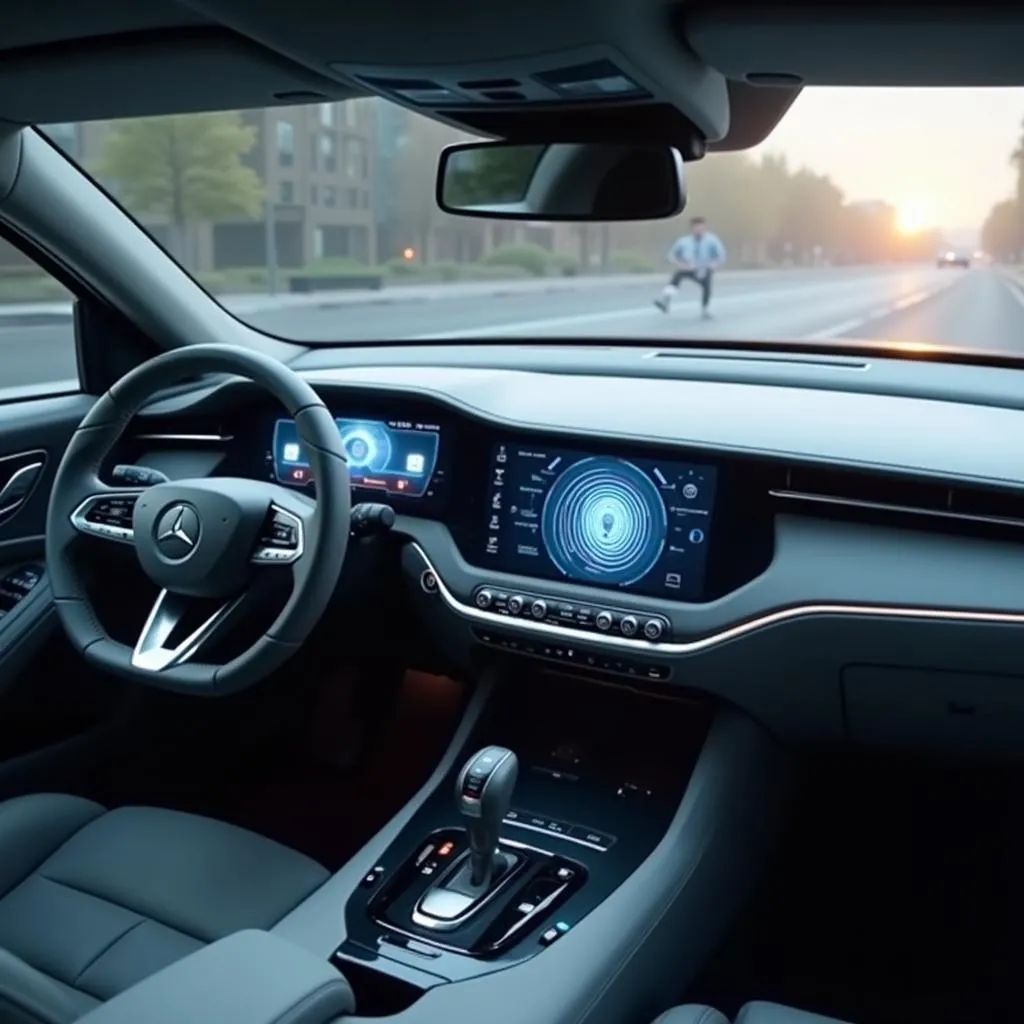Imagine a world where your car recognizes you as you approach, unlocking the doors and adjusting the seat to your preferred settings. Or a future where car theft becomes a distant memory, thanks to advanced biometric authentication systems. This is the promise of fingerprint and iris scanning technology in the automotive industry. But where do car manufacturers source these cutting-edge tools? Let’s delve into the world of vendors who are shaping the future of secure and personalized driving experiences.
Understanding the Demand for Biometric Security in Cars
Before diving into the specifics of vendors, it’s essential to understand why fingerprint and iris scanning are gaining traction in the automotive world.
- Enhanced Security: Traditional car security systems, like keys and fobs, are vulnerable to theft and duplication. Biometric authentication adds a layer of security that is incredibly difficult to compromise.
- Personalized Driving Experience: Imagine your car recognizing you and automatically adjusting the seat, mirrors, and even the infotainment system to your preferences. Fingerprint and iris scanning make this level of personalization a reality.
- Preventing Unauthorized Use: For families or businesses, biometric authentication ensures that only authorized individuals can start and operate a vehicle.
 Fingerprint Car Door Access
Fingerprint Car Door Access
Key Players in the Fingerprint and Iris Scanning Market
The market for biometric technology is booming, and several companies are emerging as leaders in providing fingerprint and iris scanning tools specifically tailored for automotive applications.
- HID Global: A well-established name in secure identity solutions, HID Global offers a range of fingerprint sensors and modules designed for integration into vehicles. Their solutions emphasize high accuracy, durability, and resistance to environmental factors.
- Fujitsu: Known for its expertise in optical and sensing technologies, Fujitsu provides iris recognition modules that are compact, power-efficient, and highly accurate, making them ideal for automotive applications.
- Synaptics: This company specializes in human interface solutions, including fingerprint sensors designed for automotive use. Synaptics focuses on providing sensors that are highly responsive, reliable, and capable of working in challenging conditions like extreme temperatures or direct sunlight.
Beyond the Big Names: Emerging Innovators
While the companies mentioned above represent established players, a new wave of innovators are pushing the boundaries of biometric technology for vehicles.
- Aerendir: This Silicon Valley startup is developing iris recognition technology that boasts unparalleled speed and accuracy, potentially revolutionizing how drivers interact with their cars.
- IrisGuard: Based in the United Kingdom, IrisGuard specializes in iris recognition for high-security applications. Their technology is already being implemented in access control systems for critical infrastructure, making a transition to automotive security a natural progression.
The Future of Biometrics in the Automotive Industry
As the technology continues to evolve, we can expect to see even more innovative applications of fingerprint and iris scanning in cars.
- Driver Monitoring Systems: Biometrics could be used to monitor driver alertness and prevent accidents caused by drowsiness or distraction.
- In-Car Payments: Fingerprint authentication could streamline in-car payments for tolls, parking, and even drive-through purchases.
- Personalized Insurance: Insurance companies might use biometric data to offer personalized insurance plans based on individual driving habits.
 Iris Scanning Car Ignition
Iris Scanning Car Ignition
Navigating the World of Fingerprint and Iris Scanning Vendors
Choosing the right vendor for fingerprint and iris scanning tools is crucial for car manufacturers. Here are some key factors to consider:
- Accuracy and Reliability: The technology must be highly accurate and reliable to ensure security and prevent unauthorized access.
- Durability and Environmental Resistance: Automotive applications demand sensors that can withstand extreme temperatures, humidity, and vibration.
- Integration and Compatibility: The chosen solution should integrate seamlessly with existing vehicle systems and software.
Frequently Asked Questions about Fingerprint and Iris Scanning in Cars
Are these systems expensive to implement?
While the initial cost of implementing biometric technology might seem high, the long-term benefits in terms of enhanced security and a personalized driving experience often outweigh the initial investment.
What about privacy concerns?
Vendors are acutely aware of privacy concerns and design their systems with data security as a top priority. Biometric data is typically encrypted and stored securely within the vehicle, minimizing the risk of unauthorized access.
Can these systems be fooled?
Fingerprint and iris scanning technologies are constantly evolving to stay ahead of potential threats. Reputable vendors invest heavily in research and development to ensure the robustness of their systems against spoofing attempts.
Exploring Related Topics
Interested in learning more about the future of automotive technology? Check out these related articles on our website:
- The Rise of Connected Cars: Benefits and Challenges
- Advanced Driver-Assistance Systems (ADAS): Shaping the Future of Driving
Need Help Implementing Diagnostic Tools?
Contact us on Whatsapp at +84767531508 for expert assistance with installing and using diagnostic tools. Our team of automotive specialists is available 24/7 to provide support and guidance.


